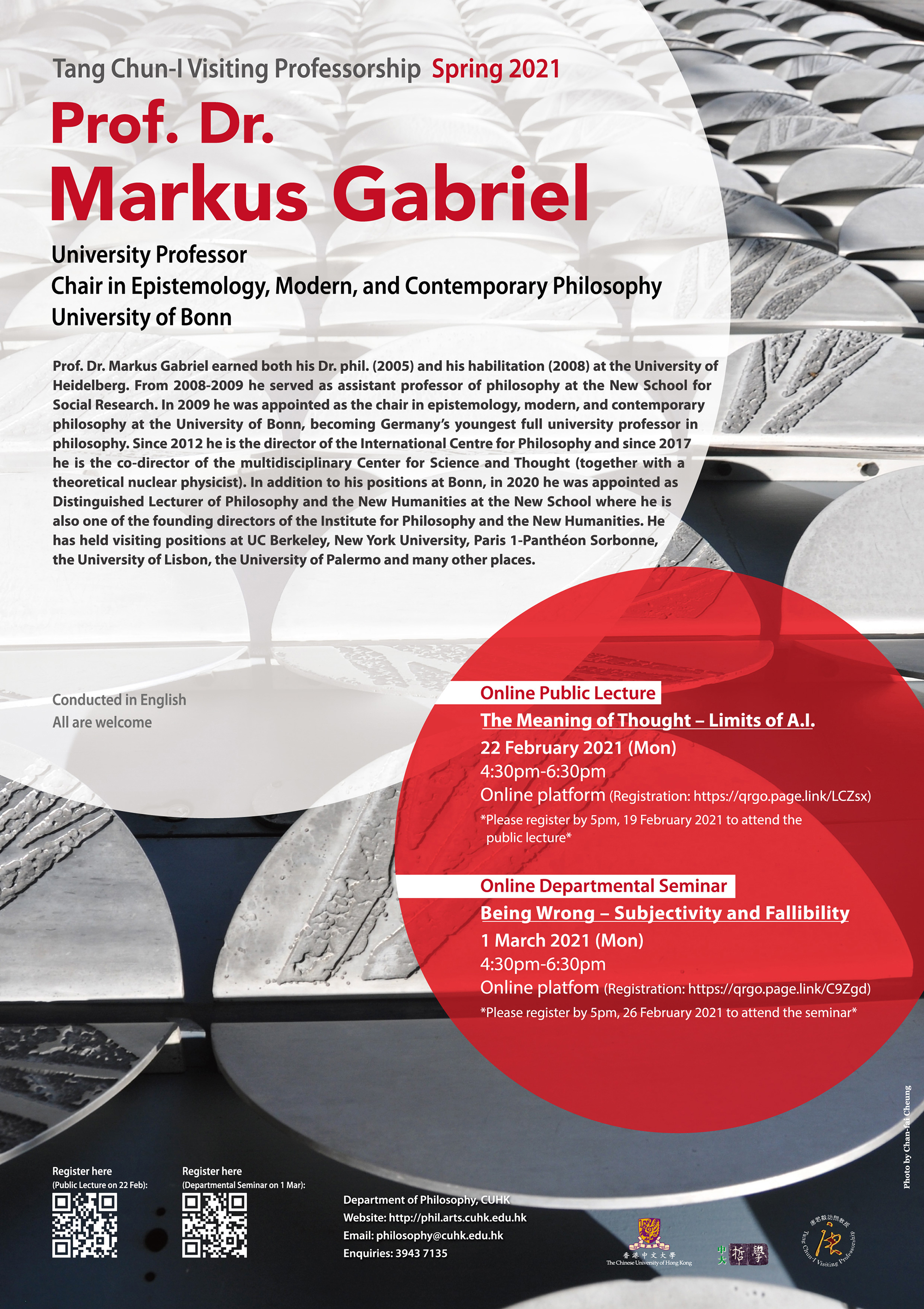Tang Chun-I Visiting Professorship Department Seminar: Being Wrong – Subjectivity and Fallibility

Prof. Dr. Markus Gabriel |
|
4:30 – 6:30 pm |
|
Online platform |
Please register by 5pm, 26 February 2021 to attend the departmental seminar.
Recording (Passcode: 3C+?jLso)
Abstract:
We are evidently capable of knowing how things are. In indefinitely many cases, how things are is implicitly or explicitly open to human thought and action. Reality is unconcealed. Yet, by virtue of our very ability to know, we are at the same time aware of the fact that we sometimes get things wrong. We are fallible. In my departmental lecture I will investigate the nature and scope of our fallibility on the basis of an assumption about subjectivity. This subjectivity assumption maintains that to be a fallible thinker means that we are subject to a constitutive and often wide-ranging ignorance as to which of our beliefs are actually true and which false. To be a subject is to be wrong about some things without ever being in a position to settle once and for all which of our beliefs are non-accidentally true (and thereby constitute knowledge) and which of our actions are morally good.
In my lecture, I will argue that human subjects are not only fallible knowers, capable of getting things right or wrong. Rather, what constitutes our individual perspective on reality (including on our individual perspective, which also belongs to what there is), is the fact that we are never in a position to set our epistemic record straight once and for all. We cannot replace all our false beliefs with true ones. To be someone is thus to be a bearer of false beliefs many of which remain undetected. If we had only true beliefs, we would merge with reality. Being and thought would form an indissoluble whole. Thus, being someone puts us at a partial distance from what there is, a distance which itself belongs to what there is. In light of these considerations, I will propose an epistemic account of reality according to which the category reality is essentially tied to our self-portrait as fallible thinkers. This will shed new light on the issue of realism in epistemology and ontology.
Delieved in English
All are welcome



